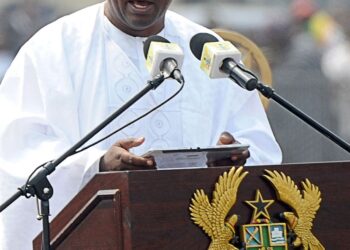The 80th session of the United Nations General Assembly brought together world leaders in New York to deliberate on pressing global challenges, from security and climate change to health and economic reform. It also provided a platform for countries to state their vision for the future of the international order.
President John Dramani Mahama used his address to press a strong case for Africa’s place in global affairs. He said Africa must not be treated as a marginal voice but as a central actor. “The future is African,” he told the Assembly, noting that while only four African countries were part of the UN’s founding in 1945, by 2050 the continent will account for more than a quarter of the world’s population and nearly a third of its youth.
Mahama centred his proposals on what he called the Accra Reset, which seeks to place health at the heart of Africa’s development. “Health is not a cost. Health is the engine of productivity and the bedrock of inclusive growth,” he said. He pointed to Ghana’s decision to uncap its National Health Insurance Fund to inject 3.5 billion cedis into health financing, the creation of a Medical Trust Fund for non-communicable diseases, and the establishment of a National Vaccine Institute. He told fellow leaders that “the time to act on health sovereignty is now.”
On reform of the international system, Mahama demanded a permanent seat for Africa on the UN Security Council with veto rights. He cautioned that the veto should not be used for narrow self-interest. He also criticised what he called a rigged global financial architecture, saying it keeps Africa in debt while limiting its access to fair financing.
Mahama also turned to wider global issues. He called for an end to the blockade on Cuba and urged support for a two-state solution in the Middle East. “The collective punishment of civilians in Gaza is unacceptable,” he said. On Sudan, he noted that refugees and victims of war there receive far less support than those in Ukraine, asking why African lives are valued less. He also reminded the Assembly of the transatlantic slave trade, which he described as “the greatest crime against humanity,” and said Africa’s call for reparations cannot be ignored.
The president linked these demands to Ghana’s own record. He cited falling inflation, a more stable currency, and his government’s 24-Hour Economy policy. He also celebrated the election of Naana Jane Opoku-Agyemang as Ghana’s first female vice president and said the time had come for the United Nations to be led by a woman Secretary-General.
By Julius Blay JABS





































